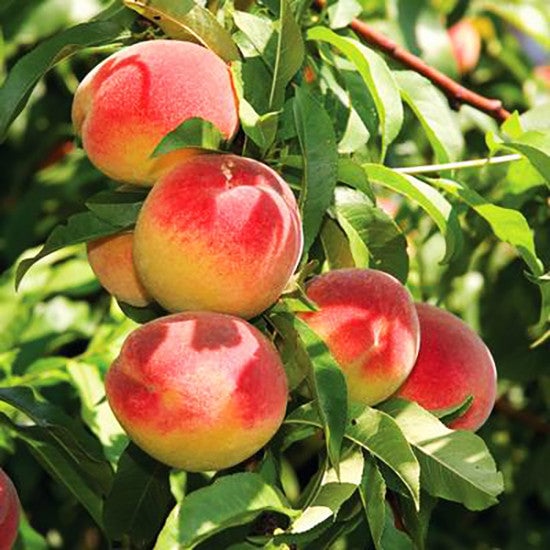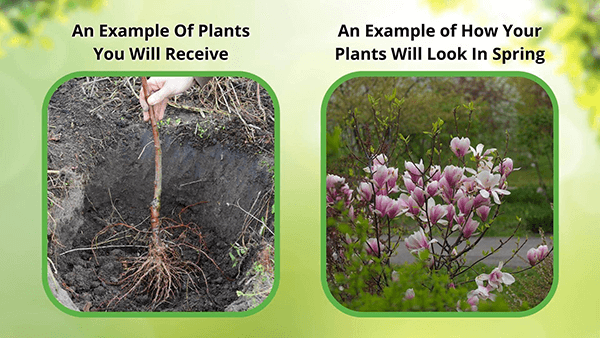


Peach Fruit Tree 3-4'
This plant ships:
NowWe sell bare root plants - click here to see what you'll receive
Peach Fruit Tree: Prunus Persica
Peach fruit trees have many benefits. Homeowners can control what they eat when they grow them themselves, which is a catalyst for obtaining good health.
Zones and Chill Hours of Peach Trees
Ours have had the 600-900 chill hours needed for high success of fruiting varieties. They are hardy in zones five through eight and will yield fruitful, and you can especially expect these to flourish in zones six and seven.
Yield and Longevity of Peach Trees
With a little planning, space, and maintenance, growing them is one of the most fruitful and rewarding returns on your garden. Depending on the variety, fresh organic produce is available within a few short years of planting. Within the average lifespan of 30 years, yours will yield fresh organic produce for a fraction of supermarket prices, averaging about 66 pounds per crop.
Growing Them At Home Allows You to Keep Them 100% Organic
In addition, you save yourself the trip to the store, which is also good for the environment. Environment Planting yours means that you are in command of the treatments and can guard yours in the most organic ways available. This means fewer chemicals are in the environment and on yours.
They are Environmentally Sustainable and Economically Friendly
On a greater and more far-reaching scale, growing locally reduces shipping and carbon dioxide emissions. A single acre of them will provide enough oxygen for 18 people. Landscaping By opting to plant yours or otherwise, you are increasing oxygen, and if you place yours strategically, they can serve as protection for shade-seeking types.
They are Self-Pollinating at TN Nursery
Most peach trees are self-pollinating and, with the lovely blooms that precede harvest, are an attractive addition to any landscaping platform. For those considering a variety, it is important to consult your almanac or nursery to determine the best varieties available for your planting conditions.
Once you have determined the type you want on your property, you are that much closer to establishing a long-term source of fresh, organic produce for your whole family.
| Planting zone | [4, 5, 6, 7, 8] |
|---|---|
| Bloom season | Spring |
| Bloom color | White |
| Height At Maturity | Under 25 Feet |





Peach Fruit Tree 3-4'
This plant ships:
Now| Planting zone | [4, 5, 6, 7, 8] |
|---|---|
| Bloom season | Spring |
| Bloom color | White |
| Height At Maturity | Under 25 Feet |

